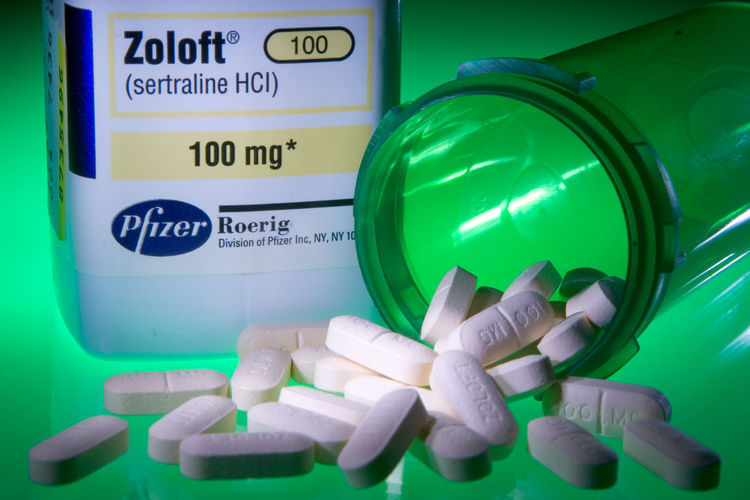Zoloft Theraputic Application
Zoloft, generic name sertraline is a popular antidepressant drug which is a part of a group of drugs known as selective serotonin reuptake inhibitors. This medicine affects the unbalanced chemicals that exist in the brain of people suffering from depression, anxiety, panic or other types of symptoms. The therapeutic dose is generally used to cure the panic disorder, depression, obsessive-compulsive disorder, premenstrual dysphoric disorder and post-traumatic stress disorder. This drug can also be prescribed for purposes that are not mentioned in this article.
Most of the medicines have side-effects and Zoloft therapeutic dose also comes with some side-effects. Some of the common side effects of consuming this medicine include: fatigue, diarrhea, drowsiness, tremor, dyspepsia, loose stools, nausea, insomnia, paresthesia, headache, ejaculation failure, anorexia, diaphoresis, xerostomia, decreased libido and delayed ejaculation. These were some of the common side effects but there are some other side effects that can be seen some cases, they are abdominal pain, anxiety, agitation, pain, vomiting, hypouricemia and malaise.
Those consumers who take the therapeutic dose in form of an oral capsule, oral solution and oral tablet, they can be prone to some adverse effects with major severity. Some of the most common severities are decreased sexual desire or ability, failure to discharge semen, especially in men. Some of the rare severities are breast tenderness or enlargement, aggressive reaction, convulsions, confusion, drowsiness, diarrhea, dryness in the mouth, excited feelings and fast-talking or sometimes doing actions that are out of control. Also includes fever, increased sweating, lack of energy, inability to sit still, loss of bladder control, sudden changes in mood or behavior, shivering, increased heartbeat, nose bleeding, skin rash or itching, unusual secretion of milk in females.
Above mentioned symptoms were related to major severity and in such cases, one should consult his or her doctor immediately. Now let’s talk about some of the minor severity that doesn’t need any type of medical attention can occur with its therapeutic dose. These include decreased appetite or weight loss, acidity in the stomach, diarrhea or loose motions, unusual drowsiness, heartburn, cramps in stomach, pain or gas problems, trouble in sleeping and many others. Some of the less common effects are a pain in the bladder, blurriness in vision, urine problem, constipation, painful urination, and frequent urination, pain around the eyes and cheekbones and running nose.
This antidepressant comes in form of film-coated tablets and should be taken orally. The drug should not be taken without medical prescription and guidance. It should be consumed as per directed by the physician. As you can see that the drug has some severe adverse effects so therefore it should be taken under medical supervision. Zoloft can be consumed in combination with some common medicines like:
- aspirin;
- zolpidem;
- ativan;
- gabapentin;
- lamictal;
- thyroxin;
- metformin;
- nexium (also known as esomeprazole);
- omeprazole (consumed in gas problems);
- vitamin D3 tablets;
- alprazolam tables.
One should never consume Zoloft together with alcohol as it may cause side effects like dizziness, confusion, drowsiness and lack of concentration. Some people may find that they are unable to think, take judgment and coordinate with other people or group. Therefore, one should avoid or limit the use of alcohol while having treatment with sertraline. Consult your physician if you have any doubts or questions. You should also tell your doctor that what other medicines you are consuming including alcohol usage and food you are having.
Zoloft medicine contains sertraline which is thought to increase levels of serotonin in the brain. The level of increased serotonin in the brain helps in the treatment of depression and anxiety disorders. Special attention should be taken among pregnant who are consuming sertraline. Research has proved that the increased usage in the first trimester of pregnancy may result in increased risk of cardiovascular and other congenital malformations. During pregnancy, one should take special care, as it has been reported to cause symptoms compatible with withdrawal reactions in neonates whose mothers had taken such drugs. In the third trimester of pregnancy, some reports have been found of vomiting, feeding difficulty, hypotonia, tremor, jitteriness, constant crying, temperature instability and respiratory distress.
So, therefore, as mentioned in the above article one should take the dose carefully and under medical supervision. Always remember, keep this and all other medicines out of the reach of children, never share your medicines with others and use medicines only when prescribed.








